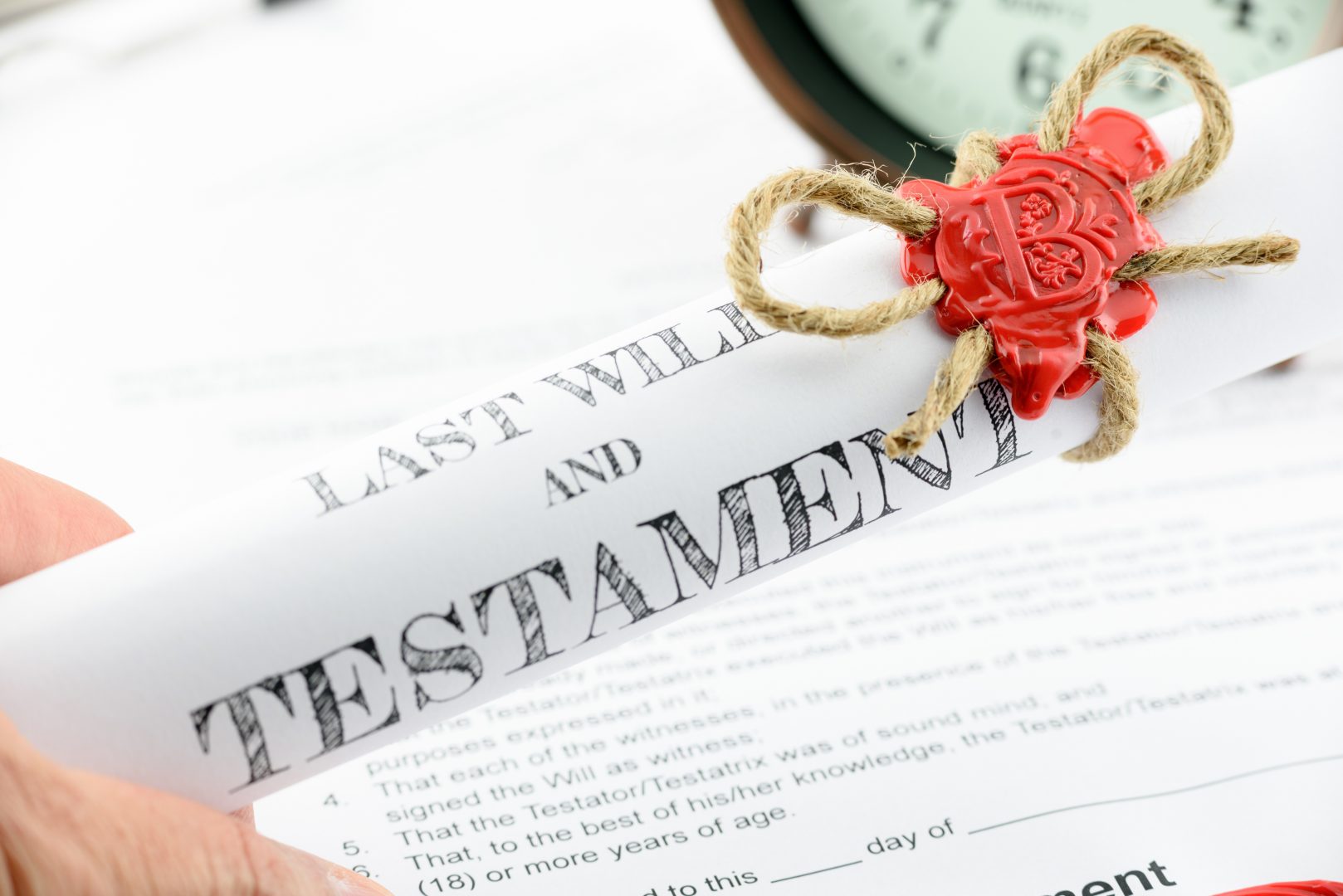News & Articles
Making a Will: Are you fully prepared?

Since the start of the coronavirus (COVID-19) outbreak in the UK, more and more people are starting to question whether they have adequate provisions in place to protect their estate and their loved ones should the worst happen.
Will enquiries have increased by 76% and the challenge of having witnesses signing documents with social distancing in place has led the Law Society, Ministry of Justice and the Solicitors Regulation Authority to consider the use of video conferencing facilities for witnesses during lockdown.
The laws around Wills are complex which makes it essential to tread carefully. If you pass away without a valid Will or a mistake deems your arrangements invalid, you will have no control over how your estate is divided upon your death and your intended beneficiaries may lose out.
The 10 Most Common Mistakes in Wills
We recommend taking professional advice and staying informed to avoid slipping up. Below, we have outlined some of the most common mistakes that you should avoid when making your Will…
- Not having two physical witnesses:
Unless legislation changes, you are still required to sign the document in the presence of two witnesses and subsequently witness each of them signing the Will.
- Asking a beneficiary to witness your Will:
Witnesses cannot benefit from your Will in any way, so a child or partner acting as a witness could cost them their inheritance.
- Making assumptions about when you or others may pass away:
There is no guarantee that a parent will die before a child, or that a younger partner will outlive an older one. Make sure to cover all eventualities.
- Failing to choose a guardian for your child/children:
If you do not set this out in your Will, the decision may go to family court and your child may be placed with someone who you would not have chosen.
- Forgetting to include all assets:
While standard assets such as property and cars may be accounted for, don’t forget to include others such as bank accounts, shares, jewellery, antiques or even record collections. Reassess your assets on a regular basis to ensure your Will is up to date.
- Assuming your partner will automatically get half:
If you are not married, there is no guarantee that your partner will get anything from your estate unless it is outlined in your Will, even if you are cohabiting or have been together for many years.
- Making changes that are not legally binding:
You cannot make amendments to your Will after it has been signed and witnessed. Instead, you will need to make an official alteration called a codicil, which must be signed and witnessed in the same way as the original Will.
- Failing to factor in debts:
Debts such as mortgage repayments or credit cards can heavily decrease the capital left behind for your beneficiaries. Streamline the process by crunching the numbers and factoring in any debt when specifying sums of money. You can also allocate a percentage of a property’s value to each beneficiary to make things easier.
- Not providing access to the original document:
Make sure someone you trust knows where the original signed copy of your Will is stored, as it will be difficult for your executor to obtain a grant of probate without it.
- Making an exclusion without proper support:
If you wish to disinherit someone who may otherwise have legal claim to your estate, you must include the reason for this in your wishes. Failure to do so means that any individual could potentially challenge the Will to claim that they have been unreasonably excluded.
It’s also important to be aware of the evergreen details of Wills, such as how to select your beneficiaries, the responsibilities of your executor/s, and the role of trusts.
Selecting beneficiaries
You can choose any living person, organisation or charity as a beneficiary to your estate; always use their full legal name to avoid any confusion and update your Will on a regular basis and following any major life event.
Bear in mind the nature of different assets and the needs of your beneficiaries – some assets will produce faster cash sums while others will be associated with longer-term or sentimental value. In the case of bank accounts or savings, check that the beneficiary specified when you opened the account is up to date with your wishes, as this will usually take precedence over your Will.
Appointing an executor
An executor is responsible for the administration of your estate according to the wishes laid out in your Will (as long as those wishes are within the law). You can appoint more than one executor and choose from friends, family members or solicitors. However, be mindful of potential problems should you choose a person who is based overseas, under 18, or someone who may not be able to effectively carry out the role.
An executor’s legal responsibilities include registering the death, arranging the funeral and applying for probate. The process of probate can be extremely complex and is often undertaken by a solicitor to ease the strain. It includes:
- Identifying all assets and debts to determine the value of the estate.
- Applying for a grant of probate to confirm the legal authority to administer the estate.
- Liquidating the assets, settling debts and bills, and paying any tax due.
- Preparing the accounts and calculating the final assets remaining for distribution to the beneficiaries.
- Transferring assets to beneficiaries.The role of trusts
Trusts can help you to maintain some control over your assets after you pass away, by specifying trustees to manage an asset while your beneficiaries receive income from it. Spouses can arrange for half their property to go into trust upon their passing; this means that the surviving partner can continue to live in and own half the home, but the remaining half will not form part of a care home evaluation, protecting it from associated costs. A trust can also help to protect your children’s inheritance should your partner remarry.
If leaving property or financial assets to a minor, it will likely be placed in trust with their guardian appointed as a trustee to manage it until they turn 18. If you wish to outline different terms or specify different trustees, it is important to do so in your Will.
Our team at Vintage Wealth Management offer a specialist Wills and Probate service, including a review of your current arrangements to ensure everything is legally correct and optimised for tax-efficiency. If you are concerned about your current provisions or wish to discuss writing a new Will, get in touch today.
Risk Disclaimer: Trusts can be complex and come with significant tax implications. Always seek financial advice before setting one up.
RECENT POSTS
-
 Spring Statement 2025: Summary of key points28/03/2025
Spring Statement 2025: Summary of key points28/03/2025 -
 Proceed with caution: Insight into crypto investing26/02/2025
Proceed with caution: Insight into crypto investing26/02/2025 -
 Cost of giving: Tax considerations for gifting09/01/2025
Cost of giving: Tax considerations for gifting09/01/2025 -
 Retirement savings for the self-employed: Paying attention to your pension10/10/2024
Retirement savings for the self-employed: Paying attention to your pension10/10/2024 -
 Business protection: Covering yourself against more hidden risks05/09/2024
Business protection: Covering yourself against more hidden risks05/09/2024
